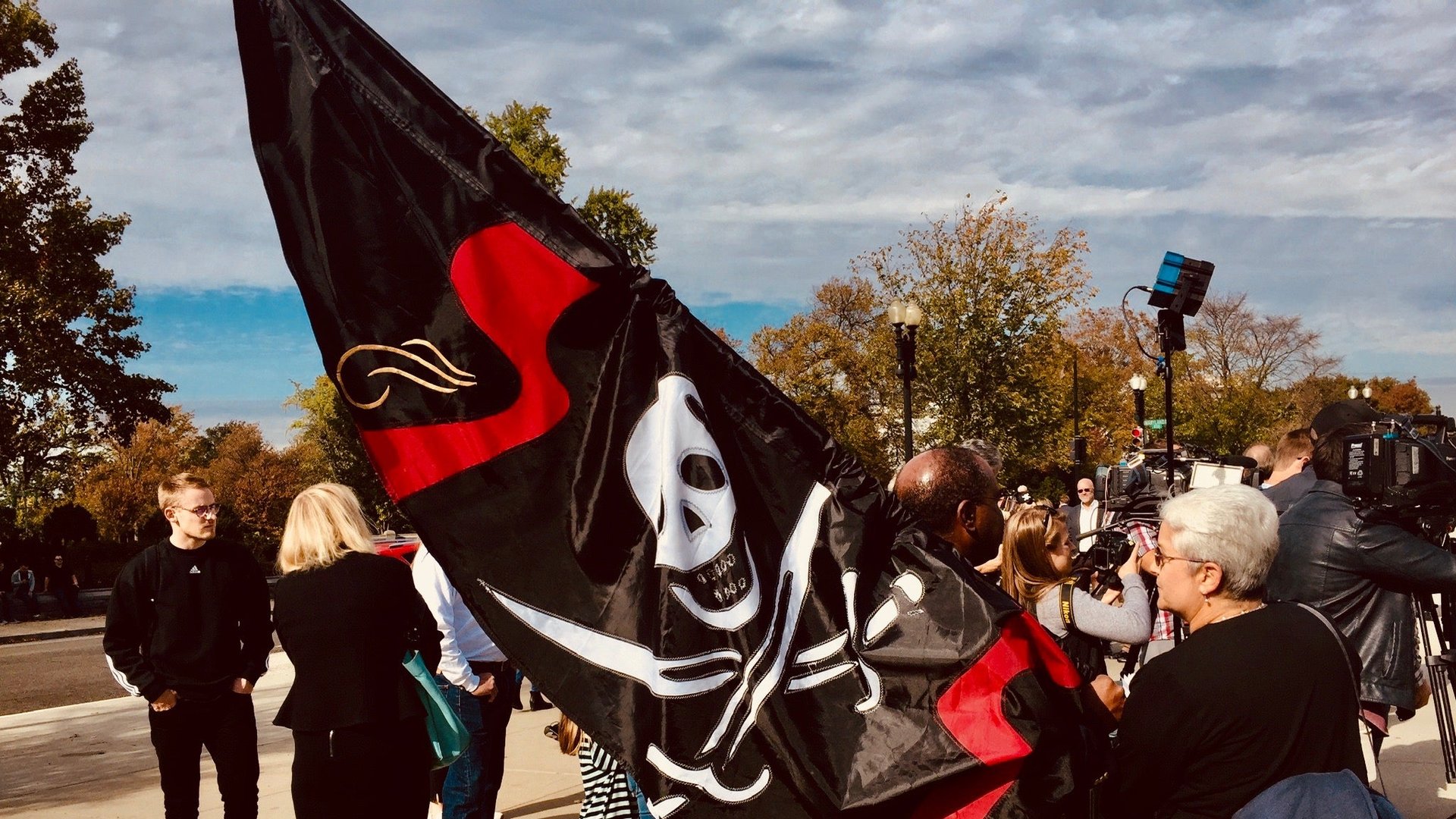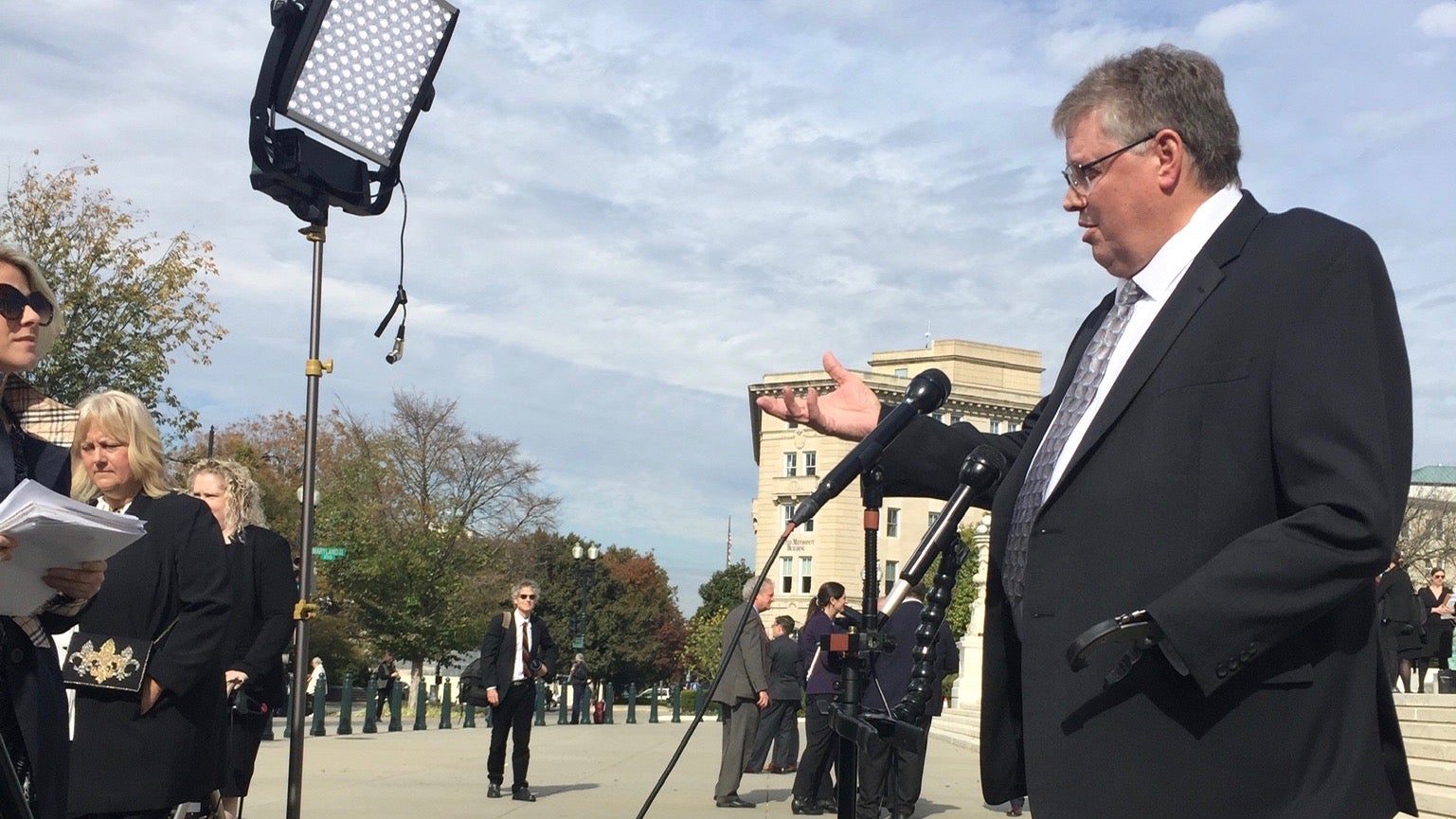A Supreme Court piracy case involving Blackbeard proves truth is stranger than fiction
The pirate Blackbeard is a real historical figure who wrecked his stolen flagship, the Queen Anne’s Revenge, off the coast of North Carolina in 1718. The pirate Captain Hook is a fictional character, the antagonist of the 1904 play Peter Pan. Today, after arguments in a US Supreme Court case about video piracy, the two pirates’ tales merged into one fantastical reality for Frederick Allen, the petitioner.


The pirate Blackbeard is a real historical figure who wrecked his stolen flagship, the Queen Anne’s Revenge, off the coast of North Carolina in 1718. The pirate Captain Hook is a fictional character, the antagonist of the 1904 play Peter Pan. Today, after arguments in a US Supreme Court case about video piracy, the two pirates’ tales merged into one fantastical reality for Frederick Allen, the petitioner.
Allen is suing the state of North Carolina for infringing on his copyrighted imagery of Blackbeard’s shipwreck in newsletters and other materials. While the ship was discovered in 1996, Allen began filming its remains for a private company in 1998. The state has claimed sovereign immunity—the right of a ruler to not be subject to a lawsuit. Now, the justices must decide whether a federal law taking away this general immunity from states in the copyright context is unconstitutional, as North Carolina says, or if Allen’s right that Congress passed the statute to ensure states wouldn’t “trample” on creators.
“No one thinks they’ll argue in the Supreme Court,” Allen told reporters following the hearing, sounding exhilarated. “The irony of a video piracy case about the pirate Blackbeard’s ship making it all this way!”
He laughed, adding, “Also, I have an iron hand. How would you top that?”

The petitioner pointed to his left sleeve, where indeed two iron hooks designed for clutching emerged from a black suit, making him look like Captain Hook. The iron apparatus replaces the hand he lost when a diving oxygen tank exploded and caught on fire in his garage in 2011. The accident happened about 13 years after Allen began diving the wreck of the Queen Anne’s Revenge and his life became all about pirates and two years before he sued North Carolina for piracy of his intellectual property.
He didn’t think his case would ever come before the justices but he’s proud to be fighting for creators. If he wins, makers will be able to stops states from plundering their intellectual property.
During oral arguments, counsel for North Carolina pleaded with the justices to understand that “states are simply different.” He said that taxpayers suffer when states are subject to the “astronomical damages” juries have awarded in copyright cases, and that a ruling against North Carolina would impact libraries, educational efforts, and archives, leaving states vulnerable.
Congress can perhaps pass a statute that allows copyright suits against states but it would have to be both more circumspect and specific, available only if there was no other remedy, and only for willful infringement and providing limited damages, to be constitutional, he said.
Justice Stephen Breyer didn’t seem to be buying it and jokingly suggested states solve their budget issues by taking everything being created in Silicon Valley with no licenses, given that North Carolina is arguing that states can take intellectual property without liability.
Counsel countered, in all seriousness, that states just aren’t that into patents, which is what would be at issue in the hypothetical tech thefts. But his answer shirked the issue and Breyer wasn’t the only one skeptical of North Carolina’s arguments. Justice Ruth Bader Ginsburg felt there was something”unseemly” about the position, noting that states reserve the right to sue when their copyrights are infringed yet want no liability, or at least limited liability, when they use copyrighted materials.
Meanwhile, chief justice John Roberts questioned North Carolina’s suggestion that copyright holders, like Allen, should sue the individual state officers responsible for the infringement instead of the state, even though they could claim immunity too and wouldn’t have much money to offer compared to the state’s public coffers. “It’s not much of a response to say it gets thrown out right away but you could do it anyway,” he said, dismissing the alternative remedy North Carolina provided.
For his part, Allen is thrilled to have come this far and vows to “never give up, never surrender” the fight. If the Supreme Court finds for him, Allen will presumably have the opportunity to pursue his claim against the state. But he believes the case is much bigger than him now, even if it is his life that has become stranger than fiction over the years he’s filmed pirate Blackbeard’s shipwreck and fought the piracy of his imagery of the stolen vessel, Queen Anne’s Revenge.